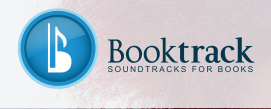 It is an accepted truism that those of us with high artistic aptitudes often lack business aptitude and vice-versa. Many writers bemoan the necessity of and time spent on promotion. We want to write. Most of us do not enjoy the aspects of our craft that involve promotion, marketing and the non-creative side of our profession.
It is an accepted truism that those of us with high artistic aptitudes often lack business aptitude and vice-versa. Many writers bemoan the necessity of and time spent on promotion. We want to write. Most of us do not enjoy the aspects of our craft that involve promotion, marketing and the non-creative side of our profession.
Let’s say that I am the poster-child for this problem. I have a website. When it was set up, (and I needed someone to do that for me) I promised myself I would post regularly on it. I don’t. We are told by those who know that we need an email list and a newsletter to let fans, friends and followers know what’s new, what’s coming and generally stay in friendly contact. In spite of repeated self-flagellation, I have not done so. Continue reading “One Indie Author’s Techno-Terror and Promo-Phobia”

 Are you addicted? Did it start long ago with your “Crackberry?” You remember, people were running around with a “Blackberry” glued to their face. It was email — 24/7.
Are you addicted? Did it start long ago with your “Crackberry?” You remember, people were running around with a “Blackberry” glued to their face. It was email — 24/7.
